Pedagogical framework
Teaching for Understanding (TfU)
The framework for Colegio Los Nogales’ pedagogical approach is Teaching for Understanding, a framework developed by a team of experts from Harvard University. These principles organize teaching based on the development of understanding, meaning the ability to think and use (do, apply, solve, transfer) learning to new and challenging situations.
In terms of teaching, the TfU framework involves a teaching process that is focused on understanding. This means that, in class dynamics, students play a central, active role, based on constant interaction at various levels: with themselves, based on a reflection on their own learning processes (self-assessment); with their classmates, based on joint construction of knowledge and mutual feedback (peer assessment); and with the teacher, based on their role as a learning guide or mediator and their continuous feedback (teacher assessment).
Language skills
We start from the basis that thought is closely linked to the development of language (Vigotsky, 1986). For this reason, the explicit, systematic and progressive development of thinking skills that can provide students with the tools they can use to understand, use and produce different types of oral and written texts in different academic areas is essential (Ordóñez, 1993).
Cooperative learning
Cooperative learning (Johnson and Johnson, 1988) is incorporated into teaching as an important tool that makes it possible to create a learning environment that is conducive to developing both thinking skills (analyzing, synthesizing, arguing, reaching agreements, communicating, reflecting) and social skills (teamwork, respect, empathy) and executive functioning (following instructions, organization, time management, efficiency, resourcefulness).
Comprehensive Values Education (FINES – Formación Integral en Valores)
The development of values and ethics by our students is a fundamental part of the work we do every day. For this reason, an essential part of the Nogales program is the FINES curriculum, which works in parallel and simultaneously with the academic curriculum. This program is used with all students at the school and focuses on developing life skills, based on the following four areas:
Self-awareness
Self-control
Self-management
Self-regulation
Reading the context and building relationships with others
Technology integration
Colegio Los Nogales works so that its students can exercise 21st century skills using a variety of technological tools that help them to learn and propose solutions to real, global problems. From this perspective, the significant integration of technology into different subjects seeks to promote, within the framework of Teaching for Understanding, cooperative learning, the development of language skills and values education, to make students critical, innovative, creative, responsible, respectful, ethical people who are capable of “learning to learn” in a globalized, digital and constantly changing world.
Research
Research is an essential component of the learning process based on Teaching for Understanding. Components such as language skills, cooperative learning, comprehensive values education and technology are integrated into it in significant ways. Colegio Los Nogales’ library is the center from which all areas and resources are integrated so that students can explore and learn, thanks to collaborative efforts by librarians and teachers, which enables inter-disciplinary integration.
BIBLIOGRAPHY
- Johnson, David W., Roger T. Johnson and Edythe Johnson Hulobec. (1988). Cooperation in the Classroom. Minnesota: Interaction Book Company.
- Ordóñez, Claudia Lucía. (1993). In: “Introducción Taller de Habilidades Lingüísticas.” Colegio Los Nogales.
- Stone, Martha (1999). La Enseñanza para la Comprensión. Buenos Aires: Paidós.
- Van Dijk, Teun and Walter Kintsch. (1983). Strategies of discourse comprehension. New York: Academic Press.
- Vygotsky, Lev. (1986).Thought and Language. Massachusetts: MIT.

